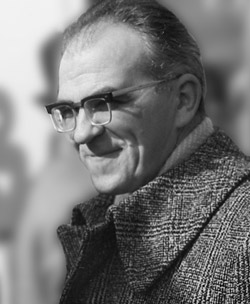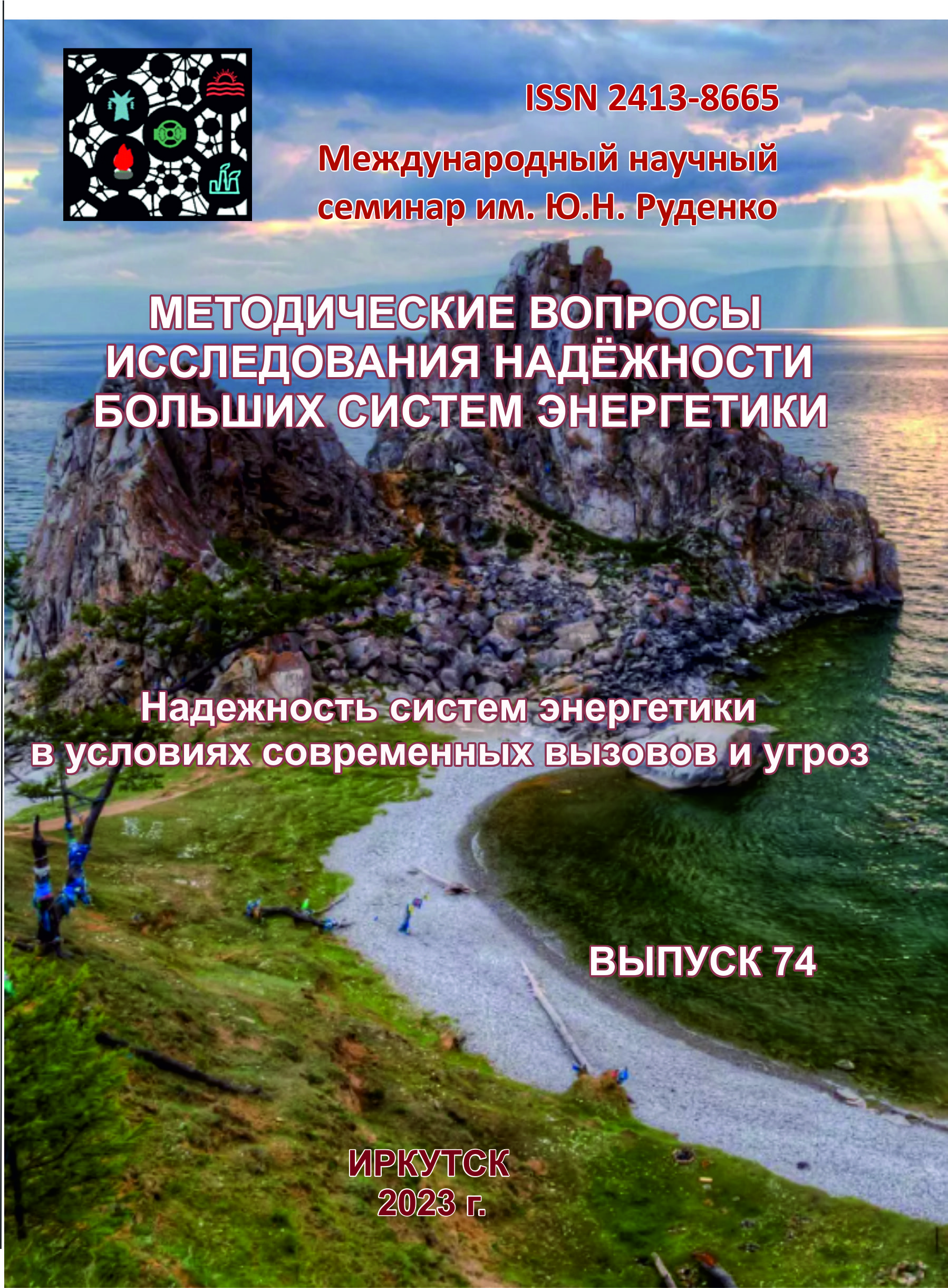About
The Scientific Workshop “Methodological problems in reliability study of large energy systems” was organized in 1973 at Siberian Energy Institute (SEI)* of Siberian Branch of the USSR Academy of Sciences on Yury N. Rudenko’s initiative and approved by the decision of the Scientific Council of the USSR Academy of Sciences for Complex Energy Problems. Currently this is a successfully operating, standing International Scientific Workshop named after Yury N. Rudenko. The logo of the Workshop is known to all its participants. It can be found on information letters, programs of meetings and covers of the Workshop proceedings. The objects of scientific research of the Workshop are the energy complex of the country and its specialized energy systems: electricity, oil, gas, coal and heat supply systems. The goals of the Workshop, the problems to be solved and the forms of work were formulated by the Workshop organizer and its first chair Yury N. Rudenko in the Regulations of the Workshop. Their original text is presented in Appendix 1. For 37 years the Workshop has been following their guidelines virtually without deviations. Corresponding Member of the Russian Academy of Electrotechnical Sciences Professor E.M. Chervonny, one of the Workshop’s veterans, wrote in his memoirs: “Reading now the Regulations of the Workshop on ES reliability that were worked out by Yury N. Rudenko in 1973 we are simply amazed at the extent to which he took into consideration all the challenges to be encountered by the Workshop. I will not analyze in detail the text of the Regulations and only note that the goals indicated there, the principles of organizing and holding the Workshop, the choice of experts to participate in meetings, the rules for selection of topics for the meetings to be held, the ways of discussing reports and the terms of their publication, the forms and guidance of the Workshop work envisaged in the Regulations have been observed over many years. Some amendments to the Regulations suggested by Yury N. Rudenko only improved them. Creation and implementation of the Regulations made the Workshop work highly efficient, especially as all their points were in complete agreement with the vital principles of their developer and the interests of active participants in the Workshop”. Currently the major objectives of the Workshop are: to raise awareness of the reliability problem, its theoretical and methodological aspects with respect to different energy systems and the energy complex as a whole under present-day conditions of energy sector operation; to analyze current methodological developments and choose the prospective directions for further scientific research on ES reliability; to discuss statements of the most topical and complex scientific and applied problems in the field of ES reliability and create theoretical and methodological framework, methods and means to solve them in a market environment; to study foreign experience in the area of ES reliability analysis and synthesis, and elaborate suggestions on its application in Russia; to develop approaches and models for solving ES reliability problems on the basis of common theoretical and methodological principles that rest on the advanced mathematical methods and high information technologies. The Workshop topics cover a wide scope of problems on ES reliability analysis and synthesis in normal conditions and in extreme situations caused by different factors. When choosing the topics of meetings, special attention is paid to methodological aspects of intersectoral studies that are based on the common properties of different energy systems. Along with the methodological issues the Workshop attaches great significance to approaches, mathematical models and algorithms to solve applied reliability problems, search for and development of the up-to-date methods based on new information technologies. The ES reliability research done by different institutions is coordinated within the framework of the Workshop. The theses related to the Workshop topics and prepared for defense are also discussed at the meetings. The Workshop work is arranged in accordance with the plans of meetings. The topics of the meetings are chosen by the Organizing Committee that consists of 37 highly qualified specialists in ES reliability from research institutes, higher educational institutions and different energy enterprises (see Organizing Committee). The Workshop meetings are held jointly with other scientific or industrial conferences in which operational services of energy enterprises participate when needed. The 23rd meeting, for example, was organized jointly with the Scientific and Technical Commission at the State Committee of the Soviet of Ministers of the USSR on Science and Technology that was engaged in elaboration of suggestions on design and introduction of new relay protection devices in electric power systems. The 39th meeting was held jointly with the Plenary Session of the Scientific Council of the USSR Academy of Sciences for Complex Energy Problems. The 45th meeting was held within the framework of the 6th Session of the Scientific Council of the Siberian Branch of the USSR Academy of Sciences concerning the problem “Development of the oil and gas complex of Tyumen region”, etc. When analyzing the history of the Workshop, we can note that its meetings were held with a different degree of intensity from year to year. During the first 3 years the Workshop worked most intensively, the active process of “immersion” into the studied field and accumulation of initial knowledge took place. Altogether 18 meetings (including 13 in Irkutsk) were held and 10 collections of papers were published. Gradually the Workshop meetings moved from Irkutsk to other cities of the Soviet Union, Russia and abroad. Nowadays there are more than 40 cities in Russia, NIS and other countries, where the meetings were held in different years (see Map of the Workshop meetings). In Irkutsk the Workshops were held 29 times, in St. Petersburg – 6 times, in Moscow, Kiev, Syktyvkar – 3 times in each, in Minsk and Plyos – 2 times in each, etc. (see Workshop meetings). The Workshop gained in popularity with the scientific circles and reliability experts from higher educational institutions, design and operational energy organizations very quickly. The circle of specialists interested in the Workshop constantly widened. Whereas the number of participants in the first twenty meetings varied from 9 to 67 people, in the next twenty meetings – from 20 to 120. The scientific potential of the Workshop increased simultaneously with the number of participants. In January 1978 Academician L.A. Melentiev sent the letter of thanks to Yu.N. Rudenko with positive appraisal of the Workshop work by the Committee of the Scientific Council of the USSR Academy of Sciences for Complex Energy Problems.

 Yury Nikolaevich Rudenko – academician of the Russian Academy of Sciences (RAS), is an outstanding scientist in the energy field of the world significance, the founder of reliability theory in energy, a recognized leader of the scientific school in the field of reliability of energy systems, the author of more than 200 scientific works.
Yury Nikolaevich Rudenko – academician of the Russian Academy of Sciences (RAS), is an outstanding scientist in the energy field of the world significance, the founder of reliability theory in energy, a recognized leader of the scientific school in the field of reliability of energy systems, the author of more than 200 scientific works.

